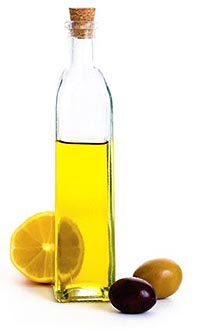Good Fats, Bad Fats, Worst Fats

"Eat a low-fat, low-cholesterol diet" has been the mantra for healthful eating for decades. Touted as a way to lose weight and prevent or control heart disease and other chronic conditions, millions of people have followed (or, more likely, have tried to follow) this advice.
Seeing a tremendous marketing opportunity, food companies re-engineered thousands of foods to be lower in fat or fat free. The low-fat approach to eating may have made a difference for the occasional individual, but as a nation it hasn't helped us control weight or become healthier. In the 1960s, fats and oils supplied Americans with about 45 percent of their calories; about 13 percent of us were obese and under 1 percent had type 2 diabetes, a serious weight-related condition. Today, Americans take in less fat, getting about 33 percent of calories from fats and oils; yet 34 percent of us are obese and 8 percent have diabetes, most with type 2 diabetes.
Why hasn't cutting fat from the diet paid off as expected? Detailed research — much of it done at Harvard — shows that the total amount of fat in the diet isn't really linked with weight or disease. What really matters is the type of fat in the diet. Bad fats, meaning trans and saturated fats, increase the risk for certain diseases. Good fats, meaning monounsaturated and polyunsaturated fats, do just the opposite. They are good for the heart and most other parts of the body.
The Good Fats
Monounsaturated fats lower total cholesterol and LDL cholesterol (the bad cholesterol) while increasing HDL cholesterol (the good cholesterol).
Include these foods in your shopping basket next time you visit the store to ensure you are getting all the monounsaturated fats your body requires — they have a great deal of benefit to offer:
- Olives and olive oil: Great for the heart, as well as the waist and they also have antioxidant and anti-inflammatory benefits because they contain polyphenols and vitamin E.
- Nuts: Macadamia nuts have the highest content of monounsaturated fats, followed by hazelnuts, pecans, and almonds. Good for the heart, as they are a good source of soluble fiber calories. They also make an ideal snack as they are so filling. Studies also show that the oils they contain stimulate fat loss.
- Avocados: According to a recent study in Brisbane, Australia, eating avocados daily for three weeks improved blood cholesterol in middle-aged women better than a low-fat diet did. The avocado diet reduced total cholesterol 8 percent compared with 5 percent for the low-fat diet. Most important, avocados improved the good HDL-cholesterol ratio by 15 percent.
The daily amount of avocado ranged from 1/2 avocado for small women to 1 1/2 for large women. Expected outcome: By eating avocados, heart patients could cut their risk of heart attack 10-20 percent and death rates 4-8 percent in 3-5 years.
- Dark chocolate: Not to be used as an excuse to binge on chocolate, but including some dark chocolate into your cheat meals is a delicious way to get some extra monounsaturated fats into your diet. About a third of the fat found in dark chocolate is monounsaturated. Dark chocolate is also full of flavonoids, which help to protect cells from free radical damage and lower blood pressure. So next time you are staring at the chocolate shelf in your local grocery store be sure to choose the dark option over milk or white chocolate.
Polyunsaturated fats also lower total cholesterol and LDL cholesterol. It contains essential fatty acids (EFAs) such as omega-6s (linoleic acid) and omega-3s (alpha-linoleic acid) that are needed in our diet. So, a certain amount of polyunsaturated fats are needed because essential fatty acids may help in prevent or control of all kinds of ailments and conditions such as:
- heart disease
- cancer
- immune system deficiencies
- arthritis
- obesity
Polyunsaturated fats are also one of few rich sources of vitamin E.
Polyunsaturated fats are found in foods of plant origin. The best sources are oily fish, walnuts, sesame and pumpkin seeds. Other high sources are vegetable oils such as sunflower and safflower.
The Bad Fats
Saturated fats have been proven to raise overall cholesterol levels and contribute to heart disease. Saturated fat is found mostly in foods that come from animals. These include:
- fatty meats: beef, lamb, pork
- poultry with skin
- processed meats — bologna, hotdogs, other lunch meat, bacon, sausages
- whole and 2% milk
- butter
- cheese
- lard
A high content of saturated fat can be found in some foods that come from plants such as:
- palm kernel oil
- palm oil
- coconut oil
- cocoa butter
The Worst Fats
Trans fats were invented when scientists decided to hydrogenate or turn liquid fat into solid fat. This process increases the shelf life of certain products and helps to preserve flavor. However, these fats are particularly dangerous. In fact, the recommended daily amount of trans fats according to the American Food and Drug Administration is zero. Like saturated fats, trans fats have been strongly linked to heart disease.
Where can you find trans fats? You’ll be surprised and shocked! Yes, in chocolates and wafers, in shortening and margarine, in ice-creams, biscuits and cookies, cakes, breakfast cereals, burgers, bakery produce, French fries, pastries, pies and puffs, fried chicken, and pizza.
|